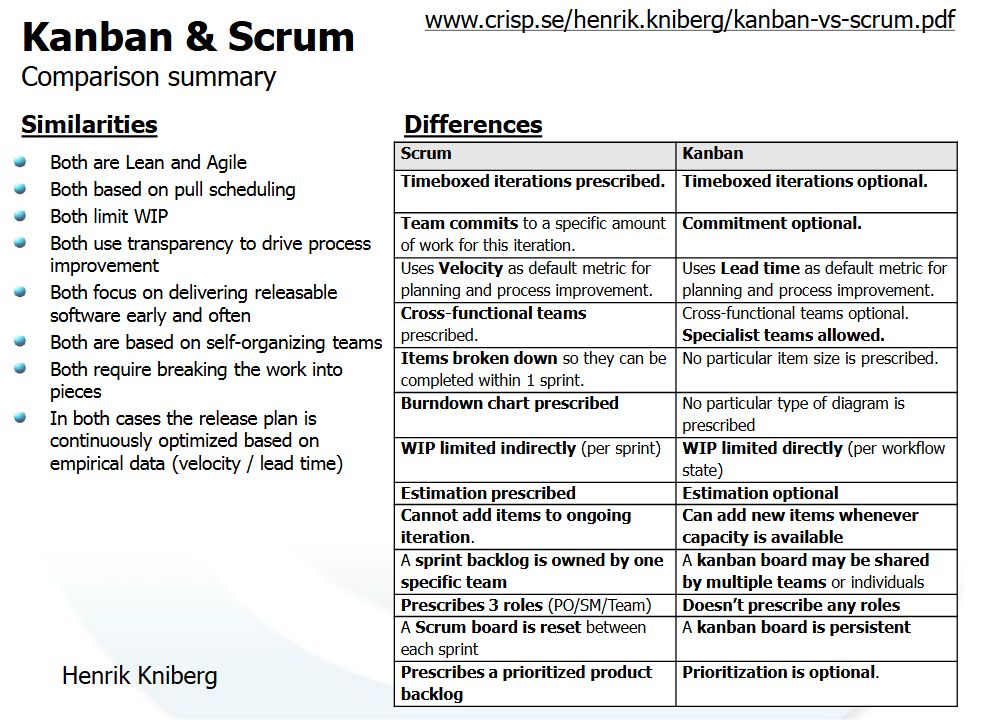Henrik Kniberg and Mattias Skarin have written a short book about the similarities and differences about similarities and differences between Scrum and Kanban, if you are interested. There is also a summary from Henrik Kniberg herefound here.
For a TL;DR you can jump to page 48 of the summary where you will find this:
I also wantIf you look at the Kanban differences, where there is no lock down into iterations of prescribed duration, it uses lead time instead of velocity for planning and improvement, it's not mandatory to add one thingsplit work items into smaller estimable items, adding items anytime capacity is available, and there is no need to build a prioritized backlog, and you combine that with what's mentioned in Barnaby Golden's answer. If you think about the characteristics of the projects he's describing in his answer (+1), you will seeit can be deduced that Scrum works best for product development while Kanban is better suited for production support Scrum works better for product development while Kanban is better suited for production support (i.e.for example, you're faster to respond to new work with Kanban than it is with Scrum where you are trying to protect your sprint goal by not messing to much with the sprint scope).
